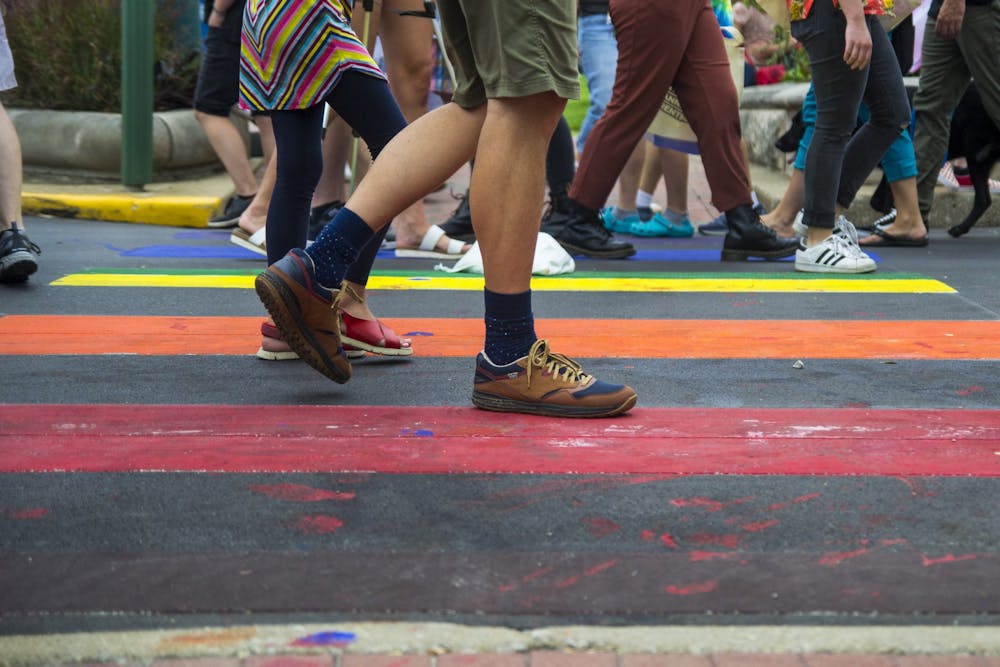From restaurant workers to doctors and nurses, essential workers are risking their lives to help their communities during the COVID-19 pandemic. Schools are vexed with daunting decisions on whether to preserve in-person courses and risk the safety of their students or navigate to online and face the almost-certain perils that accompany remote learning. There are seemingly no answers to aid the uncertainty in the wake of the pandemic.
Previously vulnerable populations and communities have been catastrophically affected by the pandemic. Families with low socioeconomic status are being forced into essential labor. Black and Latinx communities contain disproportional numbers of essential workers, such as food service or cleaning personnel, created by systemic racism engulfed in education and urbanism in the United States.
Although the experiences of communities cannot be compared during this time, one community that is severely vulnerable during the COVID-19 pandemic is the LGBTQIA+ community. The pandemic wreaks havoc on LGBTQIA+ youth by confining children to unwelcoming homes and closing areas where guidance is sought, such as therapy at school.
Due to the various regulations and orders regarding confinement to home, LGBTQIA+ youth can be forced into living in toxic environments where their identities are not supported or respected. Additionally, as various universities decide to pursue remote learning, college students are being forced to evacuate and return to their previous residences. Various high schools, middle schools and elementary schools are following this pursuit. While a progressive college town might provide an accepting atmosphere for a student’s unique identity, or a group of high school peers might encourage a student to pursue their identity, remote learning could prove a challenging obstacle to LGBTQIA+ youth discovering their identity.
Not only do school closures assert a problem in establishing supportive friendships for lost students, but additionally, in offering professional guidance. Therapy and mental health services provided by universities and primary schools are not always provided remotely or exhibit tumultuous challenges in communicating with students. And if the person has access to private mental health guidance, COVID-19 could prevent the offices from opening or the individual from being able to attend. The LGBTQIA+ community is 8.4 times more likely to commit suicide and 5.4 times more likely to experience depression, making access to mental health vital.
LGBTQIA+ youth represent up to 40% of the homeless youth population, extremely disproportionate to the population percentage of LGBTQIA+ youth in the United States, which is estimated to make up around 11%. Common calamities affecting LGBTQIA+ youth, such as family rejection, criminalization and discrimination, are prospective determinants to the homelessness rate in the community. The diminishing, or inconsistent, access to mental health services and the greater potential of confinement to living with family will only exacerbate these numbers.
The COVID-19 pandemic has caused detriment to the homeless community. Forced to often unsafe and unsanitary environments due to displacement, homeless people are defenseless to the virus. Many cities are relocating homeless individuals, prioritizing those diagnosed with COVID-19, but activists experiencing homelessness are criticizing the apathy of the government. For example, Bill de Blasio’s failure to acknowledge the homeless population in New York City by sheltering residents without safety precautions. But once people experiencing homelessness are placed into the displacement locations, protocol must be upheld to cease the spread of COVID-19 throughout the shelters.
The present, tangible effects of COVID-19 on the homeless population, such as the danger of unmasked homeless individuals contracting COVID-19 in overcrowded cities, are accompanied by future, intangible consequences. The future, and increasingly present, inevitability of an economic recession and smaller job market, as well as the inconsistency of testing, will provide additional obstacles for the homeless population.
LGBTQIA+ youth, specifically homeless LGBTQIA+ youth, are hurting. A community experiencing homelessness, displacement and mental illness at immense rates is extremely susceptible to the effects of this pandemic. COVID-19 is not a hoax, and it is devastating our most vulnerable communities.
It is important to reflect on the various intersectional identities of those around you and how these identities are disproportionately affected by the devastation COVID-19 has left. One person’s navigation through their personal adversities cannot compare to their roommate’s, their friend’s or their professor’s. It is essential to understand one's privilege.
Russ Hensley (he/him) is a sophomore studying mathematics, political science and international law. He is a curator for TEDxIndianaUniversity, a member of IU Student Government and a member of the Hutton Honors College.




